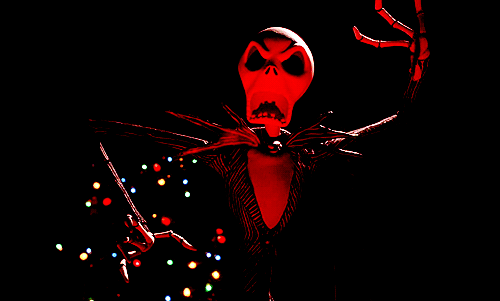Max Gladstone has taught in southern Anhui, wrecked a bicycle in Angkor Wat, and been thrown from a horse in Mongolia. Max graduated from Yale University, where he studied Chinese. Max’s novel Three Parts Dead was published by Tor Books in October 2012. Two Serpents Rise, the next book in the Craft Sequence, is due out in October 2013. You can learn more about the author by visiting his website, or following him on Twitter.
—
Happy Halloween, goblins and ghouls!
Halloween’s a great weird and increasingly necessary holiday; among other things, it’s our internationally recognized mad foray into identity experimentation. As human beings, we spend much of our days banging against systems designed to lock us into a single identity: the table where we eat lunch in high school, the baseball team we follow, the politicians we support, the church we attend, the books we read, the people we’re interested in sleeping with, the gender we describe ourselves as performing. The internet has made this battle much more complicated by encouraging, and almost requiring, the performance of and participation in fixed identities in order to function online.
To expand on that last point: there are lots of ways for someone to be, say, a meatspace Christian. Find a random physical church and talk to the attendees, and if you breach a narrow range of pre-determined talking points you’ll find a pretty wide range of beliefs and political positions. Membership of the community is determined, at least in part, by who shows up. (And who’s accepted by the pre-existing community as a member of the community, etc.) A random parishioner may disagree with the priest or preacher about most points of theology, without ever once communicating this disagreement. Some parishioners may leave if the disagreement grows extreme, but others will stay, because their friends are in church, because this is the closest church to their house, because their grandmother attended mass here every Sunday for thirty years, etc. In the physical world, mere occupation of space can impart a sort of identity.
But on the internet, you don’t exist if you’re not talking, and you aren’t assumed to have any identity unless you say you do. People proclaiming a particular identity use different rhetorical tools than people who possess that identity but don’t actively proclaim it. Proclamations of identity tend to involve cultural shibboleths: reciting the Nicine Creed if you wish to be seen as a Christian, talking about learning to play Dungeons and Dragons as a zit-faced teenager if you wish to be seen as a nerd. But cultural shibboleths can easily become requirements that people participating in a community conform to a certain orthodoxy—which can get dangerous fast. Proclaimed identities become traps, or weapons. People can find themselves carried along by associations and alliances they never meant to form. Our very self-proclaimed identities can betray us.
So: Halloween. Here’s a holiday where we all get to become the things we fear. We have license for a brief span to step outside the orthodoxies that constrain us: to peel off the faces riveted onto our skull. This is a day for becoming something bigger than “good.” This is a day to understand the skeleton’s angle, to get where the goblin’s coming from.
And to eat a lot of chocolate.
Enjoy it while it lasts.

One Responses
By putting on masks we can explore different facets of our personality. We are each of us stronger, bolder, and more adventuresome than we give ourselves credit for.